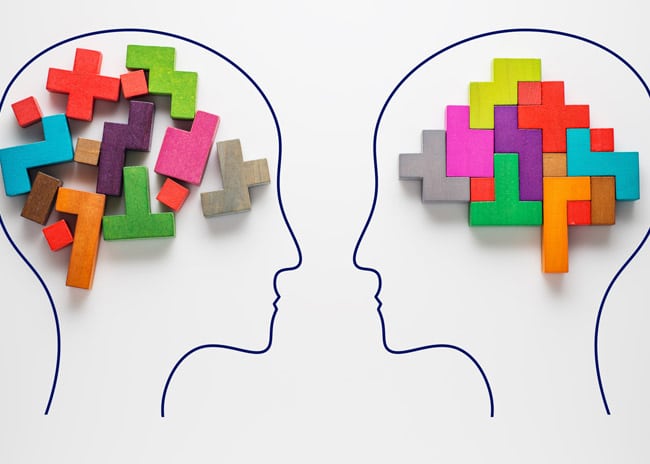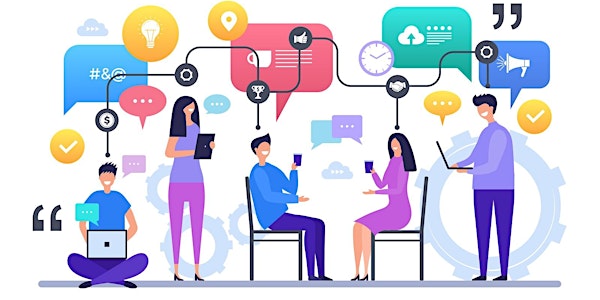In today’s fast-paced and interconnected world, effective communication has become a cornerstone of professional success. Whether you are leading a team, negotiating with clients, or collaborating with colleagues, the ability to convey your ideas clearly and persuasively is essential. At Al Mithaq Institute, we understand the transformative power of communication, which is why we offer a wide range of courses designed to enhance your communication skills and propel your career forward. In this comprehensive guide, we will explore the importance of effective communication, the key elements that make up successful communication, and how our courses can help you master this critical skill.
The Importance of Effective Communication in the Workplace
Effective communication is more than just exchanging information; it’s about understanding the emotion and intentions behind the information. In the workplace, communication is the glue that holds teams together, the bridge that connects leaders with their employees, and the tool that drives organizational success. Here are some reasons why effective communication is crucial in the professional world:
1. Enhances Team Collaboration
- Clear Communication: When team members communicate clearly, they can work together more efficiently, reducing misunderstandings and ensuring that everyone is on the same page.
- Conflict Resolution: Effective communication helps in resolving conflicts amicably, fostering a positive work environment where everyone feels heard and valued.
2. Boosts Productivity
- Streamlined Processes: Clear instructions and well-articulated goals help employees understand their roles and responsibilities, leading to increased productivity.
- Time Management: Effective communication minimizes the need for repeated explanations and corrections, saving time and resources.
3. Improves Leadership Skills
- Influence and Persuasion: Leaders who communicate effectively can inspire and motivate their teams, driving them towards achieving organizational goals.
- Decision-Making: Good communication ensures that leaders have all the necessary information to make informed decisions.
4. Enhances Customer Relations
- Client Satisfaction: Clear and empathetic communication with clients builds trust and strengthens relationships, leading to higher customer satisfaction and loyalty.
- Problem-Solving: Effective communication helps in addressing customer concerns promptly and efficiently, turning potential issues into opportunities for improvement.
5. Facilitates Career Advancement
- Professional Image: Individuals who communicate effectively are often perceived as more competent and confident, enhancing their professional image and career prospects.
- Networking: Strong communication skills are essential for building and maintaining professional networks, which can open doors to new opportunities.
Key Elements of Effective Communication
To communicate effectively, it’s important to understand the key elements that contribute to successful communication. These elements include verbal and non-verbal communication, active listening, empathy, and clarity. Let’s delve deeper into each of these components:
1. Verbal Communication
- Clarity and Conciseness: Use clear and concise language to convey your message. Avoid jargon and complex terms that may confuse your audience.
- Tone and Pitch: The tone and pitch of your voice can significantly impact how your message is received. A calm and confident tone can help in building trust and rapport.
2. Non-Verbal Communication
- Body Language: Your posture, gestures, and facial expressions can convey a lot about your attitude and emotions. Positive body language can reinforce your verbal message and make you appear more approachable.
- Eye Contact: Maintaining appropriate eye contact shows that you are engaged and interested in the conversation.
3. Active Listening
- Attention and Focus: Pay full attention to the speaker, avoiding distractions and interruptions. This shows respect and helps in understanding the message fully.
- Feedback: Provide feedback by nodding, summarizing, or asking clarifying questions. This demonstrates that you are actively listening and engaged in the conversation.
4. Empathy
- Understanding Emotions: Empathy involves understanding and sharing the feelings of others. It helps in building strong relationships and resolving conflicts effectively.
- Emotional Intelligence: Developing emotional intelligence allows you to manage your own emotions and respond appropriately to the emotions of others.
5. Clarity and Structure
- Organized Thoughts: Structure your message logically, starting with the main point and supporting it with relevant details. This makes it easier for your audience to follow and understand your message.
- Visual Aids: Use visual aids like charts, graphs, and slides to complement your verbal communication and make complex information more digestible.
How Al Mithaq Institute Can Help You Master Effective Communication
At Al Mithaq Institute, we are committed to helping you develop the communication skills necessary for professional success. Our comprehensive range of courses is designed to cater to various aspects of communication, from verbal and non-verbal communication to active listening and emotional intelligence. Here’s how our courses can benefit you:
1. Diploma in Cognitive Behavioral Therapy
- Understanding Behavior: This course helps you understand the cognitive processes behind behavior, enabling you to communicate more effectively with individuals who may have different thought patterns.
- Conflict Resolution: Learn techniques to resolve conflicts and improve interpersonal communication in both personal and professional settings.
2. Diploma in Emotional Intelligence
- Self-Awareness: Develop self-awareness and self-regulation, which are crucial for effective communication.
- Empathy: Enhance your ability to understand and respond to the emotions of others, fostering stronger relationships.
3. Diploma in Public Speaking and Presentation Skills
- Confidence Building: Gain confidence in public speaking and learn how to deliver compelling presentations.
- Audience Engagement: Master techniques to engage your audience and keep them interested in your message.
4. Diploma in Business Communication
- Professional Writing: Improve your written communication skills, including email etiquette, report writing, and business correspondence.
- Negotiation Skills: Learn how to negotiate effectively and achieve win-win outcomes in business dealings.
5. Diploma in Leadership and Management
- Influence and Persuasion: Develop the skills to influence and persuade others, essential for effective leadership.
- Team Communication: Learn how to communicate effectively with your team, ensuring alignment and collaboration.
6. Diploma in Customer Service Excellence
- Client Interaction: Enhance your ability to communicate with clients, addressing their needs and concerns effectively.
- Problem-Solving: Develop problem-solving skills to handle customer complaints and turn them into positive experiences.
7. Diploma in Cross-Cultural Communication
- Cultural Sensitivity: Understand and respect cultural differences, improving your ability to communicate with a diverse audience.
- Global Communication: Learn how to navigate the complexities of global communication, essential for international business.
The Role of Technology in Modern Communication
In today’s digital age, technology plays a significant role in how we communicate. From emails and video conferencing to social media and instant messaging, technology has transformed the way we interact with others. Here’s how technology is shaping modern communication and how you can leverage it to enhance your communication skills:
1. Digital Communication Tools
- Email and Messaging: Learn how to use email and messaging platforms effectively, ensuring clear and professional communication.
- Video Conferencing: Master the art of virtual meetings, including how to present yourself on camera and engage participants.
2. Social Media Communication
- Brand Communication: Understand how to use social media to communicate your brand’s message and engage with your audience.
- Crisis Management: Learn how to handle communication during a crisis, maintaining transparency and trust.
3. Collaboration Platforms
- Team Collaboration: Use collaboration tools like Slack, Trello, and Asana to enhance team communication and project management.
- Document Sharing: Learn how to share and collaborate on documents in real-time, improving efficiency and productivity.
4. Artificial Intelligence in Communication
- Chatbots and AI Assistants: Understand how AI-powered tools can enhance customer communication and streamline processes.
- Data-Driven Communication: Use data analytics to tailor your communication strategies and improve engagement.
The Future of Communication: Trends to Watch
As technology continues to evolve, so does the way we communicate. Here are some emerging trends in communication that you should be aware of:
1. Remote Work and Virtual Communication
- Hybrid Work Models: With the rise of remote work, effective virtual communication skills are more important than ever.
- Virtual Reality (VR) and Augmented Reality (AR): These technologies are transforming how we interact in virtual environments, offering new possibilities for immersive communication.
2. Personalization and Customization
- Tailored Communication: Personalized communication is becoming increasingly important, as audiences expect messages that resonate with their individual needs and preferences.
- AI-Driven Personalization: AI tools are enabling businesses to deliver highly personalized communication at scale.
3. Sustainability and Ethical Communication
- Green Communication: As sustainability becomes a priority, businesses are focusing on eco-friendly communication practices.
- Ethical Messaging: Ethical communication involves being transparent, honest, and responsible in your messaging, building trust with your audience.
4. Interactive and Engaging Content
- Gamification: Incorporating game-like elements into communication can make it more engaging and interactive.
- Interactive Media: Use interactive media like polls, quizzes, and live videos to engage your audience and encourage participation.
Conclusion: Unlock Your Potential with Al Mithaq Institute
Effective communication is a vital skill that can significantly impact your professional success. Whether you are looking to enhance your leadership skills, improve team collaboration, or build stronger client relationships, mastering the art of communication is essential. At Al Mithaq Institute, we offer a wide range of courses designed to help you develop the communication skills you need to thrive in today’s competitive business environment.
Our programs are tailored to meet the needs of professionals at all levels, from entry-level employees to senior executives. With our expert faculty, flexible learning options, and internationally recognized certifications, you can be confident that you are receiving the highest quality education.
Don’t miss the opportunity to unlock your full potential. Visit our website at https://almithaqinstitute.com/ to explore our courses and enroll today. Whether you prefer online or in-person learning, we have the perfect program to help you achieve your professional goals.
For more information, feel free to contact us through our contact page or explore our courses page to find the right program for you. Stay updated with the latest insights and tips by visiting our blog page, and learn more about our mission and values on our about us page.
Invest in your future today with Al Mithaq Institute and take the first step towards mastering effective communication and achieving professional success.







